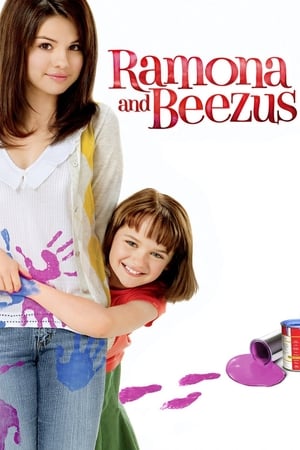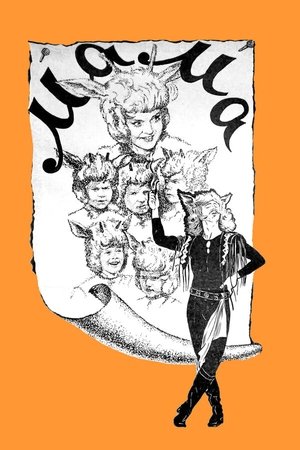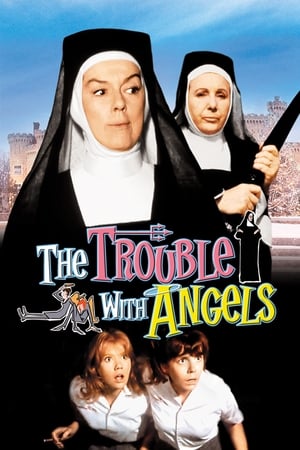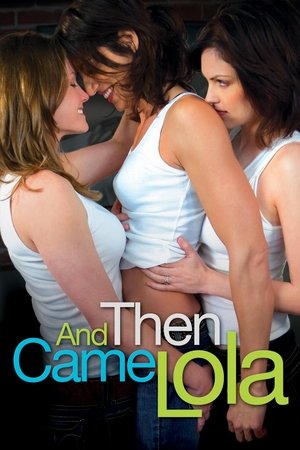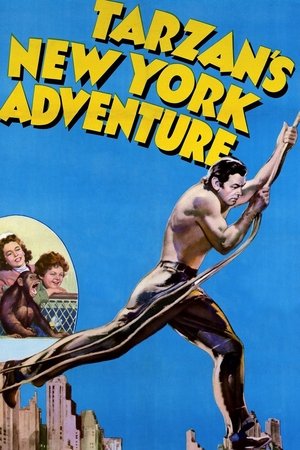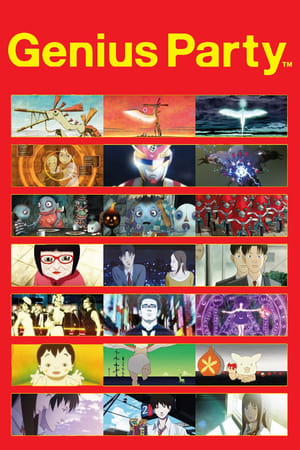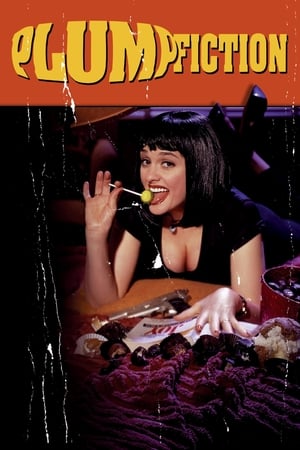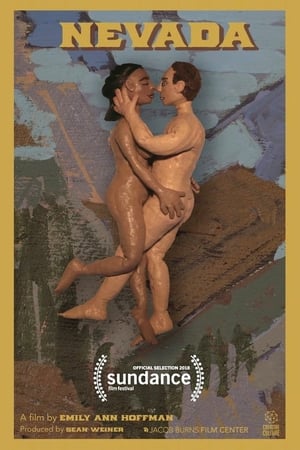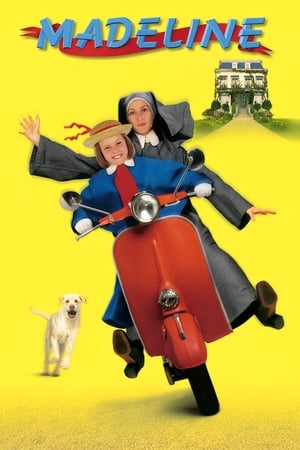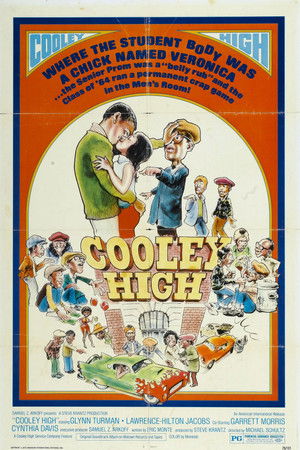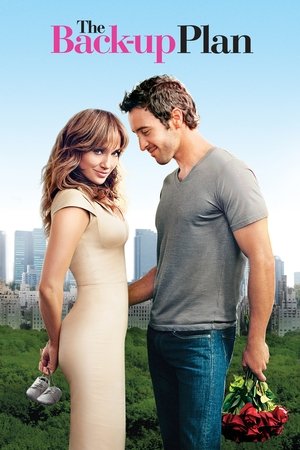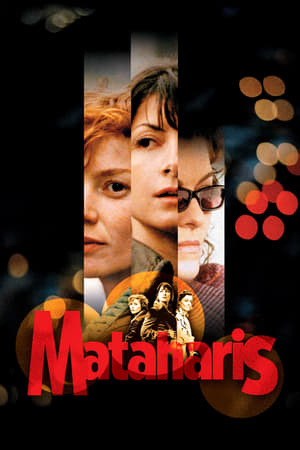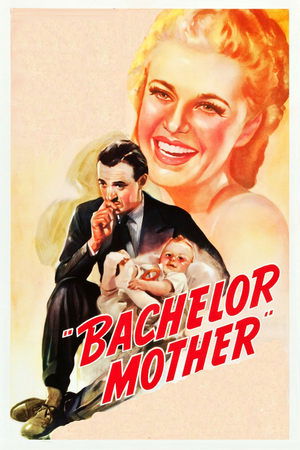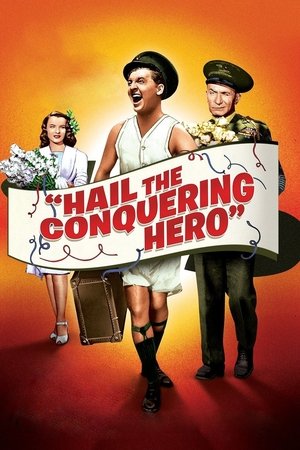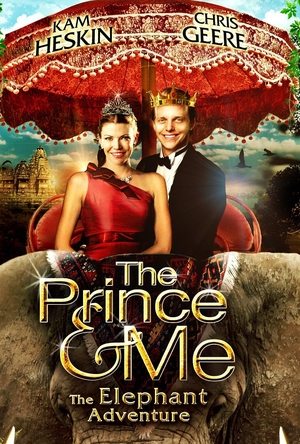Overview
Barbie and Ken are having the time of their lives in the colorful and seemingly perfect world of Barbie Land. However, when they get a chance to go to the real world, they soon discover the joys and perils of living among humans.
Reviews
_Barbie_ reels you in with its silly humor and fantastical ideas. The war of Kens during the last half hour of the film is an all-timer because a battle full of handsome maneuvers, like showing off their naked chest and manly noogies, turns into a full on dance off between Ryan Gosling and Simu Liu.
But the second half of the film leaves a thought-provoking message in your brain regarding both men and women. The Kens gaining respect little by little mirrors how women eventually earned their rights to be respected individuals — after being considered as only being useful in the kitchen or for making babies — except with the gender roles reversed and nude blobs instead of genitalia.
**Full review:** https://bit.ly/beachoff
I took my daughter along to see this, naively expecting light, family friendly fun and well, its not. Not even a little.
The kindest way I can describe this monstrosity is mean spirited, misandry. The message is simply not one I want my child taking on board.
My daughter wanted to leave before I'd even suggested it, so we did and had a better time doing something else together.
In summary, in my opinion, nasty and spiteful. Hollywood deserves its declining viewership, if this is all it has left to offer.
FULL SPOILER-FREE REVIEW @ https://www.firstshowing.net/2023/review-greta-gerwigs-barbie-is-both-hilarious-thought-provoking/
"Barbie is hilariously meta, containing spectacularly funny musical numbers, and an efficient tonal balance between over-the-top comedy and rich, thought-provoking social commentary. Inevitable awards are on the way for the brightly colored production design, costumes, and makeup.
Greta Gerwig and Noah Baumbach's narrative unapologetically tackles quite serious topics, from sociopolitical matters like patriarchy and sexual harassment to questions about existential crises, personal identity, self-love, and, of course, the roles of women and men in today's society.
Margot Robbie was destined to play Barbie just as Ryan Gosling was born with Kenergy in his veins. Absolutely fantastic, as are the rest of the Barbies and Kens.
A must-see in a packed theater!"
Rating: A-
Terrible movie with no plot.
The film is marketed as a light hearted family film but instead focuses on adult themes while pushing an extremist feminist agenda which mocks traditional family values and men.
The only enjoyable parts of this movie are the scenes with Ken, played by Ryan Gosling.
"Thus Spake Zarabarbie" - that's the opening message as narrated by Dame Helen Mirren who gives us a potted history of the doll - from it's origins as an inanimate plaything of young girls to it's current status as an empowering conduit for young girls to emerge into society as uninhibited and aspirational beings with only the sky as the limit. Well, that's the philosophy in Margot Robbie's "Barbieland". A sterile sort of environment that lives it's life along the lines of a pink "Groundhog Day". Men? Well yes, there are - as embodied by the tanned, rippled and toned "Ken" (Ryan Gosling) but they are very much the in-app purchase in this world, with little purpose aside from augmenting a "Barbie". Strangely, one morning, the stereotypical "Barbie" finds she has lost some of her charm! She is flat footed, her endlessly elysian existence is fraying at the edges? What do do? See "Weird Barbie" (Emerald Fennell) and seek her sagely advice. That, however, she doesn't like. She must enter into the real world and find whoever is supposed to be playing with her - clearly not an happy girl - and see if she can cheer her up and restore the equilibrium. En route, she finds that her ever devoted "Ken" will join her and their arrival in the big city introduces both to a bewildering world of sexists, misogynists and cynics. The latter best exemplified by "Sasha" - her somewhat disenchanted owner. When the boss of Mattel (Will Ferrell) discovers her escape, he mobilises the whole of his organisation to get her back in her box whilst an equally disillusioned but newly engaged "Ken" heads back to his home realising that maybe the men don't have to live quite such understudy lives. Can she elude her pursuers long enough to befriend "Sasha", her much less cyclical mother "Gloria" (America Ferrera) and then get home before both of her world's are alien to her? This is good fun, this. Gosling is a talented actor who can also churn out a decent power ballad (there are a few) and there is the oddest of chemistries here between him and an very much on-form Robbie who puts her heart and her soul (and loads of joyous/bemused facial expressions) into this role. Greta Gerwig and Noah Baumbach have written a witty script that pitches the naive and the innocent in with the venal and the observational. It swipes at all things sexist - and not just from the woman's perspective either - and though it does ridicule the restrictions society has put on the historical progression of women through the ranks of corporate America, it does so in a positive and enjoyable satirical manner. Will Ferrell - I can take him or leave him - is really only adequate as the epitome of the male dominated company structure but there is quite a nice set of scenes with Rhea Perlman (for ever "Carla" from "Cheers!") who portrays the inventor - if that is the word - of the whole "Barbie" concept, and who knits it all nicely together towards the end. Don't be a snob about this, get yourself into a cinema and prepare to be entertained. Bergman it isn't, but an enjoyable evaluation and parody of 21st century life, opportunity and all things vacuous it certainly is.
This was an _excellent_ film that left me emotionally stretched in just the right way. It's an adult movie with childhood references (not a kids' film at all), and seems pitched at people roughly my age (Matchbox 20 referenced as a track for wooing is too close for comfort!) It _superbly_ voices the internal contradictions women need to navigate to be accepted. It works hard not to centre Ken, even while his role is a critical counterpoint, but also gives a little airtime to how much a male-dominated world makes it hard to be a man too.
The writing is out of this world, the pacing is spot on, and Margot Robbie utterly _nails_ the role — especially the emotional and physical aspects of being a doll in a way that playfully nods to the many ways that children play with Barbie.
It's a wonderful film that I'd encourage everyone to see. It's _hard_ to watch, as a man—feeling responsible for so many challenges women face—but Barbie doesn't judge, it voices. It's a message that informs me, helps me, as well as entertaining me, but it isn't meant for _me_; the extent to which Yvette felt seen, understood and perfectly spoken on behalf of _is_ this movie, and why it deserves all the praise it's getting.
Originally posted at: https://www.byjp.me/posts/reviews/movies/barbie/
“Heavy is the arm that wears its heart on its sleeve.” That’s the best way to sum up this overwritten, overlong, stunningly obvious treatise on gender equality, consumerism and existentialism, whose messages get beaten to death beginning early on and never let up, an exhausting experience, to be sure. Writer-director Greta Gerwig’s latest offering, co-written with collaborator Noah Baumbach, features a dreadful script that’s about as subtle as a young adult novel, drones on and on and on for about 30 minutes longer than it needs to be, becomes endlessly repetitive, and incorporates story threads that could have easily been scaled back or eliminated entirely (such as those with Will Ferrell and Michael Cera). What’s more, much of the dialogue is either stupefyingly juvenile or sounds more like “writing” than anything anyone would actually say (even for a fictional fantasy character), with attempts at humor that often fall woefully flat. And, to be honest, for all intents and purposes, the project comes across like a two-hour commercial for Mattel (even if the company manages to find ways to poke fun at itself). To its credit, “Barbie” does have a few strengths going for it, such as its superb production design, some genuinely clever humor (especially its opening pre-titles sequence and occasional asides), and fine performances by Margot Robbie and Ryan Gosling (who manage to make this material look better than it actually is), as well as a heartwarming appearance by Rhea Perlman. Beyond that, though, this is handily the most overrated, overhyped release of the summer movie season, one that I’ll easily forget before year’s end – and one that conclusively proves the power of marketing, no matter what the quality of the merchandise being promoted.
McKinnon and Gosling's acting is great, and the dance numbers are really well done. But the story is very weak -- the Gloria/Sasha tie-in felt ham-fisted and the 'bonding' Barbie has at the end with Ruth makes no sense in the context of the rest of the film. It also doesn't help that throughout the whole movie you're being hit over the head with a message that they *really* want to make sure you understand (how many times can you say 'patriarchy'?) Not recommended.
The _Barbie_ movie is funny, and fun, and moved with deft pace from laughs to moments so engaging you could hear a pin drop in the theatre.
Its social message should not be controversial — _Barbie_ is a _critique of power and status quo_.
Its allegory in art swings at every in-power group, and gives voice to every marginalized group.
There's even a point at which Barbie longs to restore the status quo in Barbieland and return to her position of privilege, and is chastised by Ken who, having reversed the roles, asks her "how does it feel?" (to be not seen, to not matter).
_Barbie_ illustrated clearly that _the status quo hurts everyone, including those in power_ — in other words, challenging the status quo is good for men as well as woman (and insert every other power dynamic here — able-bodied as well as mobility-challenged, rich as well as poor, etc.)
That its social message is controversial proves its necessity. The only way this critique on power and status quo could be misconstrued as an attack on men is if people think power and control of the status quo belong only to men — which, eureka! is precisely what this movie is speaking to.
"When you're accustomed to privilege, equality feels like oppression".
**Barbie's breathtaking visuals and practical effects outshine the erratic storytelling to make a fresh and innovative movie with themes that will be divisive for many.**
Barbie is a visually stunning achievement that has excelled at the box office while dividing audiences. On the one hand, Barbie amazes with extravagant practical sets and exceptional performances, but on the other hand, the story and directing feel chaotic and erratic. The target audience seems to be moms who played with Barbies and would bring their daughters to the film. Therefore, some film's themes feel more grown up than expected for a movie about a child's toy. Despite probably not being the primary target demographic, I enjoyed the film, especially Margot Robbie and Ryan Gosling's performance. They elevated the story and script to the successful giant the movie has become. The casting of Kate McKinnon and Will Ferrell was perfect for the roles they portrayed. The sets and production design were some of the most impressive I have ever seen in a film! The story was unfocused and unpredictable but also fun and lighthearted. While I wouldn't say Barbie was perfect, and its themes a little too complex for a movie about a toy, its production design and unique story stood out in an era of remakes and sequels.
Barbie presents a captivating cinematic journey, deftly utilizing an iconic doll to explore intricate gender dynamics. Guided by Greta Gerwig’s direction, Margot Robbie and Ryan Gosling offer standout performances, complemented by memorable songs and stunning set designs, creating an immersive and humorous experience. This thought-provoking film seamlessly weaves a commentary on equality into its dazzling visuals and catchy tunes, harmoniously blending humour and insight. The result is an unforgettable viewing adventure that engages, entertains, and resonates long after the credits roll.
The main problem with this movie is that the authors attempt to address many crucial topics in our society, but none of them are explored thoroughly.
The main topic about equality for women in the world was screwed up by saying it out loud through characters, but not depicting it. And especially by forgetting that equality means equality for everyone, for men and for women, but not only for women.
However, there were positive aspects, such as commendable performances by Ryan Gosling and Margot Robbie. Additionally, there were a few hilarious jokes, and the vibrant colors in the cinematography complement the narrative about Barbie.
Nevertheless, it's worth watching at least once.
This movie is slightly above average by modern comedy standards. I was expecting more based on the people behind it, they've all produced better. I think more accurately it should be called "Ken", Ken is the character that goes through the most transformation, and who had the best jokes and sequences. I did get a few genuine laughs from some of the songs and gags that were centered around his character. I did not buy the whole mother daughter real world story line, in particular the daughter's readiness to transform from cold disaffected teen to fully invested in the political activism of an imaginary world, filled with montages and outfit changes. Overall I did not hate it but I wouldn't recommend it or watch again.
First off, let me say that the production aspects of Greta Gerwig's Barbie are ... incredible. It is a beautiful movie and an incredible homage to its subject matter and its selected era aesthetic.
The movie itself is far more complex, with dozens of delightful, if not bravura, performances (Margot Robbie is, no matter what Helen Mirren says, perfection), coupled to an intricate narrative and examination of concepts around feminism, patriarchy, interpersonal relationships, societal norms, existentialism, capitalism, self-actualization, and a stubborn defiance of expectations to turn an message movie about dolls into a cartoon of easy heroes and villains.
I'm always a bit leery about saying something is brilliant, or even profound, but I will say that Barbie is simultaneously entertaining, nostalgic, hilarious, moving, inspirational, and thought-provoking, and I look forward to re-watching it a number of times in the future.
(And if it doesn't have a broad spread of Oscar nominations, I'll be quite put out.)
'Barbie' has more to it than I would've predicted. It's a good movie.
I steer clear of as much film promo as possible, so was kinda expecting this to be more of a 'proper' comedy - just an assumption on my part. It does have humour but it's far from the film's main thing, there are a few chucklesome moments but I found it to be more earnest than funny.
It does get a tiny bit moralistic, though undoubtedly has the right intentions and does certainly hit the nail on the head with certain points. The story itself is interesting, I like that they didn't lean deep into the usual fish out of water stuff when Barbie visits the real world. I enjoy how the world is set, with the multiple Barbies and Kens etc.
The cast are great. Margot Robbie is top notch - the perfect choice. Ryan Gosling is excellent as well, while America Ferrera, Will Ferrell and Michael Cera are positives too. Away from those onscreen, the look of the film is splendid and the soundtrack fits well - even if Charli XCX's track is the only one I'd intentionally listen to.
All in all, glad I watched this. I'd recommend it, even if my mum (who I watched this with, fwiw) wouldn't. 😄
[Blu-ray HD Movies Store](https://www.bluray-discs.com)
My feelings were somewhat ambivalent before watching "Barbie". Due to my admiration for Greta Gerwig's films and her personal work, I had high expectations. However, the comprehensive marketing of "Barbie" had me concerned that it might fall into the trap of consumerist pseudo-feminism and face backlash from the public.
But I must say, this film truly exceeded my expectations!
Perhaps many people watched "Barbie" for the nostalgia of their childhood, but this movie is not about creating a pure and nostalgic atmosphere like "Toy Story". It is a profound and highly modern film with a thought-provoking core, marking a breakthrough for Hollywood in commercial films with feminist themes. Its narrative remains closely linked to various issues in modern society. While it includes the passionate declarations and satirical commentary on patriarchy often seen in feminist films, it also sincerely attempts to build bridges for dialogue between genders and among the same gender.
This is particularly evident in its depiction of "patriarchy" and the "male gaze."
**What is patriarchy?**
The answer presented by the film is that patriarchy does not necessarily refer to a society solely ruled by men. The essence of patriarchy lies in the imbalance of power structures, thus any society where one party dominates or suppresses the discourse of another is an embodiment of patriarchy. The film conveys this through the contrasting portrayal of Barbieland, which represents a matriarchal society, and Kendom, which represents a patriarchal society, as well as the power struggles between the two and their resulting consequences. In Barbieland, the Barbies have absolute dominance in social, political, economic, and cultural aspects. The night festivities always belong to the Barbies, while Kens merely serve as props. On the other hand, Ken, after experiencing the baptism of the real world (the true patriarchy society), immediately becomes more patriarchal and transforms Barbieland into Kendom, adopting the patriarchal system of the real world. The power dynamics are thus reversed, and the Barbies become mere servants to the Kens. However, whether it is Ken in Barbieland or Barbie in Kendom, both are unable to express themselves freely. They both inevitably become objectified beings, seeking their own worth through the validation of others. This is because the web of power restricts subjectivity and is independent of gender. Anyone, regardless of gender, can be the perpetrator of patriarchy, and anyone, regardless of gender, can be a victim of patriarchy. This exploration sets the film apart from many mainstream movies that fail to delve into the complexities of patriarchy.
That being said, the climactic scene where the Barbies reclaim political power seems to suggest that female governance is stronger than solely male governance, but with the need for certain modifications. However, upon watching it only once, I am not entirely certain about this point.
**Reproduction of the Four Gazes of Gender**
It can be said that the film industry has always been built upon the male gaze, while the female gaze has gradually become familiar with the progress of society and the increasing influence of women in consumer culture. However, the male gaze often found in films is directed towards sexualized female characters, especially evident in the visual language. Similarly, the female gaze is based on the objectification of male characters from the perspective of female viewers. In contrast, the discussion of male gaze towards other males or female gaze towards other females, and the impacts they generate, are rarely brought up in public discourse.
These four dimensions of gender gaze are represented to varying degrees in the film "Barbie". In Barbieland, the Kens are the objects of gaze and are in a passive position both physically and mentally. After experiencing the privileges brought by patriarchy for males in the real world, Ken projects his inner desires and fantasies onto successful male figures in reality, ultimately achieving self-identification with these masculine qualities by establishing Kendom. The Barbies in Kendom, including Barbie herself portrayed by Robbie, and the peculiar gaze directed towards them when they enter the real world, represent the reproduction of the male gaze. The Barbies in Barbieland may appear carefree and glamorous, but they still hold certain underlying consensus regarding "beauty". That is why Barbie becomes so alarmed when she discovers that her feet are no longer in the shape of high heels but can fully touch the ground, or when her skin develops cellulitis instead of remaining smooth. This also explains why the unconventional and eccentric Barbie advocating female liberation and freedom is initially excluded from the mainstream in Barbieland, only to be eventually accepted at the end.
**Non-stereotypical Feminism in Barbie**
The third highlight of this film lies in its unconventional expression of feminism, primarily manifested through the construction and subsequent shattering of Barbieland, which breaks away from the clichés of commercial films representing female themes, such as those centered around young girls.
Postfeminism emerged in the 1980s as a critique and reflection on the waves of the second-wave feminist movement. It is not a singular school of thought, but rather encompasses a broad concept containing various voices. According to feminist scholar Angela McRobbie, postfeminism overly emphasizes individual choices, which hinders the understanding of gender's structural role and impact, thereby weakening the force of social change. Furthermore, in the context of the "sheconomy," postfeminism's endorsement of consumerism also poses the danger of reducing feminism to a commodity or marketing strategy. This, in turn, obstructs people from acknowledging the real challenges faced by women in economic, political, and social spheres. From this perspective, the film's portrayal of Barbieland and the lifestyles and states of the Barbies in the early stages carries a strong sense of postfeminism.
Surprisingly, the film ingeniously transitions to Barbie crossing over into the real world and embarking on a series of explorations regarding gender, emotions, life, and death. This breaks the singular fantasy that Barbie and female viewers may have about Barbieland, preventing the story from becoming a mindless action flick. The film not only advocates for body diversity and inclusivity in women but also delves deeply into Barbie's journey of personal growth, showcasing how she transforms from an innocent and simple assembly line doll into a fully realized human being with genuine emotions and a strong sense of self-will. In this regard, "Barbie" truly reconstructs the meaning of Barbie, imbuing its feminism with a more enriching and sincere undertone.
**Intriguing Plot and Character Designs**
Proactively deconstructing oneself
Two particularly memorable scenes stand out in this regard. First, Margot Robbie's Barbie, in a self-deprecating manner, criticizes her own appearance while others hurriedly try to console her. Suddenly, a voice-over interjects, implying that even the director chose Margot Robbie to play the role of Barbie, making the self-critique less convincing (laughs). The second scene involves the CEO of the Barbie manufacturer rejecting the film's mom character's passionate plea for aesthetic diversity in Barbie's production. However, as soon as his subordinate suggests that this approach could be highly profitable, he immediately changes his stance, simultaneously mocking capitalism and poking fun at himself.
Filming war scenes
This film is packed with entertaining plot twists and visuals, one of which includes a chaotic gathering of Ken soldiers amidst Kendom's disarray. Greta transforms the typical war scene, filled with sword fights and rivers of blood, into a lively and adorable virtual pet brawl, showcasing her unique and imaginative approach.
Allan's character design
The design of the character Allan is also quite intriguing. In a Barbieland where all males are named Ken and all females are named Barbie, where gender traits and boundaries are distinct, Allan stands out as a one-of-a-kind existence, defying any specific gender definition, be it in name, personality, or appearance. This adds a touch of queerness to the film.
Homage to various works
"Barbie" pays homage to several classic films, showcasing their imaginative style. Examples include the opening sequence reminiscent of "2001: A Space Odyssey," the choice between two pills reminiscent of "The Matrix," and the dance choreography of the Ken characters during the civil war, which nods to "Singing in the Rain" (Greta has expressed her love for this film in multiple interviews, showing genuine appreciation!).
"I want to see a gynecologist"
Initially, the significance of this final line may be unclear, but thanks to explanations from online users, it becomes apparent. Barbie, originally a doll devoid of human reproductive organs, mentioning a gynecologist implies that she now has a vagina. The desire to visit a gynecologist can be seen as her way of exploring and understanding herself as a human being.
When it comes to flaws in this film, one could argue that the pacing of the narrative is too fast, at times feeling abrupt, such as in the resolution of the mother-daughter conflict. However, one could also argue that this is a deliberate choice driven by its commercial nature, and in a way, it aligns with the film's whimsical and imaginative style.
One scene in particular deeply touched me, and that is the ending where Barbie's creator, Ruth Handler, and Barbie herself transcend the barriers of time and space to come face to face once again. The elderly Handler gazes tenderly at the doll she once single-handedly brought to life, encouraging her to bravely explore the possibilities of life and accompany her through the final stage of her awakening. In this seemingly frozen moment, the love they share flows gently in the soft whispers of Billie Eilish.
In the end, both Ken and Barbie find their own purpose and value, and through their individual journeys of growth, the film constructs a vision of an ideal world:
In this world,
everyone has the right and courage to be themselves.
In this world,
It’s not Barbie and Ken,
It’s not Ken and Barbie,
It’s Barbie and it’s Ken。
#MovieReview #BarbieMovie #TheBarbieMovie #Barbie
In my opinion, this movie was well-executed, striking a balance between fantasy and reality. "Barbie" takes viewers on an exhilarating journey, bringing the beloved doll and cartoon character to life in a spectacular live-action adaptation.
Margot Robbie shines in her role as Barbie, delivering a fantastic performance alongside a talented cast. While there were a few questionable choices in terms of casting, such as introducing a transgender Barbie character, it did not detract from the overall appeal of the film. While it may have caused some confusion among viewers, the movie's charm remained intact.
America Ferrera delivers a powerful and empowering monologue in the film, showcasing her incredible talent and versatility as an actress. Her transition from "Ugly Betty" to this role is commendable, and she truly stands out in the movie.
"Barbie" is a fun and quirky film that may not be suitable for very young children or those who prefer to shield their kids from certain themes in movies. It offers an over-the-top experience that may not be everyone's cup of tea.
The movie's main villain may not be a surprise, but the handling of the character is well-executed. Although some may find Ryan Gosling a bit too mature to play Ken, his performance adds an interesting twist to the film.

 114 min
114 min
 6.931
6.931
 2023
2023
 United Kingdom
United Kingdom
 Chris Sawin wrote:
Chris Sawin wrote: